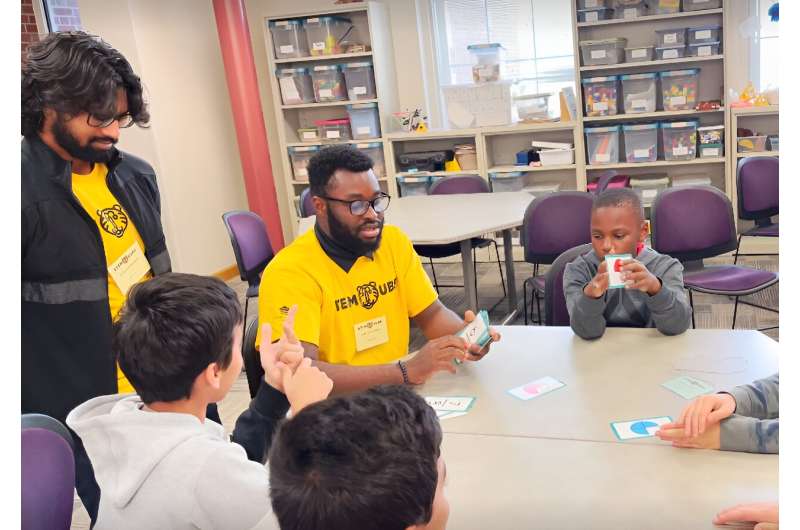This article has been reviewed according to Science X's editorial process and policies. Editors have highlighted the following attributes while ensuring the content's credibility:
fact-checked
trusted source
proofread
STEM Career Days boost high school students' career aspirations in STEM fields, study finds

A new study at the University of Missouri—in partnership with Harvard-Smithsonian researchers—shows that when colleges host "STEM Career Days," the students who attend are far more likely to pursue a career in a STEM (Science, Technology, Engineering and Math) related field.
The findings not only highlight the benefits of college recruiters introducing high school students to STEM-related opportunities, but they can also help increase and diversify the STEM workforce in the United States.
Michael Williams, an assistant professor in the MU College of Education and Human Development, analyzed a nation-wide survey conducted by Harvard University that asked nearly 16,000 college students if they attended a college-run STEM Career Day while in high school. He found that the students who attended were far more likely to have STEM-related career aspirations compared to the students who did not attend.
"Now that we have found that this type of intervention works for turning that potential interest in STEM into career aspirations in STEM, we can work on designing these interventions in a way to be even more effective and accessible to develop a more diverse STEM workforce," said Williams, who is also a faculty fellow in the MU Division of Inclusion, Diversity & Equity.
"If you want someone to be good at something, you want them to develop a sense of efficacy, which is about putting them in a position where they can see themselves doing it and succeeding at it, and seeing other people that look like them doing it as well."
When Williams was pursing a master's degree in computer information technology, he remembers being the only Black student in classes such as computer engineering and differential equations. He also remembers the classes being disproportionately made up of international students.
"The United States trails a lot of global competitors in the production of STEM talent, especially in areas like sophisticated technology and quantitative methodologies," Williams said. "The National Science Foundation has pushed for broadening participation in STEM fields and increasing diversity for populations that have previously been excluded from STEM-related opportunities. So, I am passionate about reaching people earlier in the educational pipeline and seeing what interventions help turn interest into career aspiration."
Williams added that MU is a land-grant university and has several community outreach initiatives to not only expose Missouri students to STEM topics at the high school level, but also at the middle and elementary school levels.
"STEM Cubs is a free STEM education program for students in kindergarten through eighth grade that is hosted by the MU Office of Academic Access and Leadership Development, MU College of Education and Human Development, and MU College of Engineering that emphasizes the importance of exposing all students to exploratory and experiential learning," Williams said.
"The program seeks to engage young students, particularly those historically underrepresented in STEM education and career fields, to hands-on STEM activities. By allowing them to learn about scientific concepts and how they relate to everyday life, the program helps them build interest in science and science-based careers."
The study "A quasi-experimental study of the impact of college-run science, technology, engineering, and mathematics (STEM) career days on American students' STEM career aspirations," was published in International Journal of Science Education.
More information: Joseph A. Kitchen et al, A quasi-experimental study of the impact of college-run science, technology, engineering, and mathematics (STEM) career days on American students' STEM career aspirations, International Journal of Science Education (2023). DOI: 10.1080/09500693.2023.2220071
Provided by University of Missouri





















